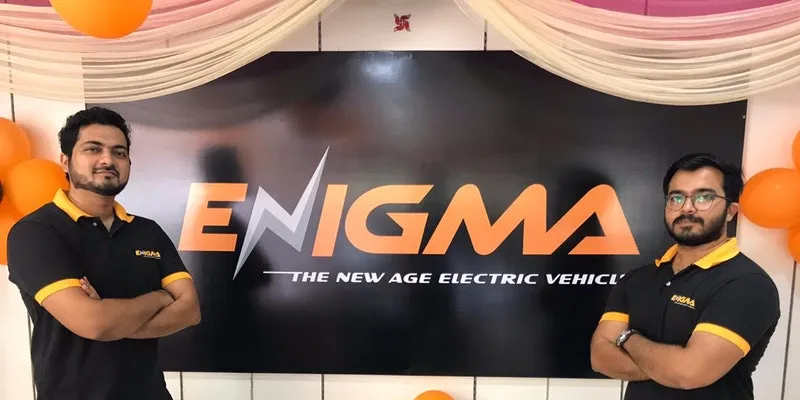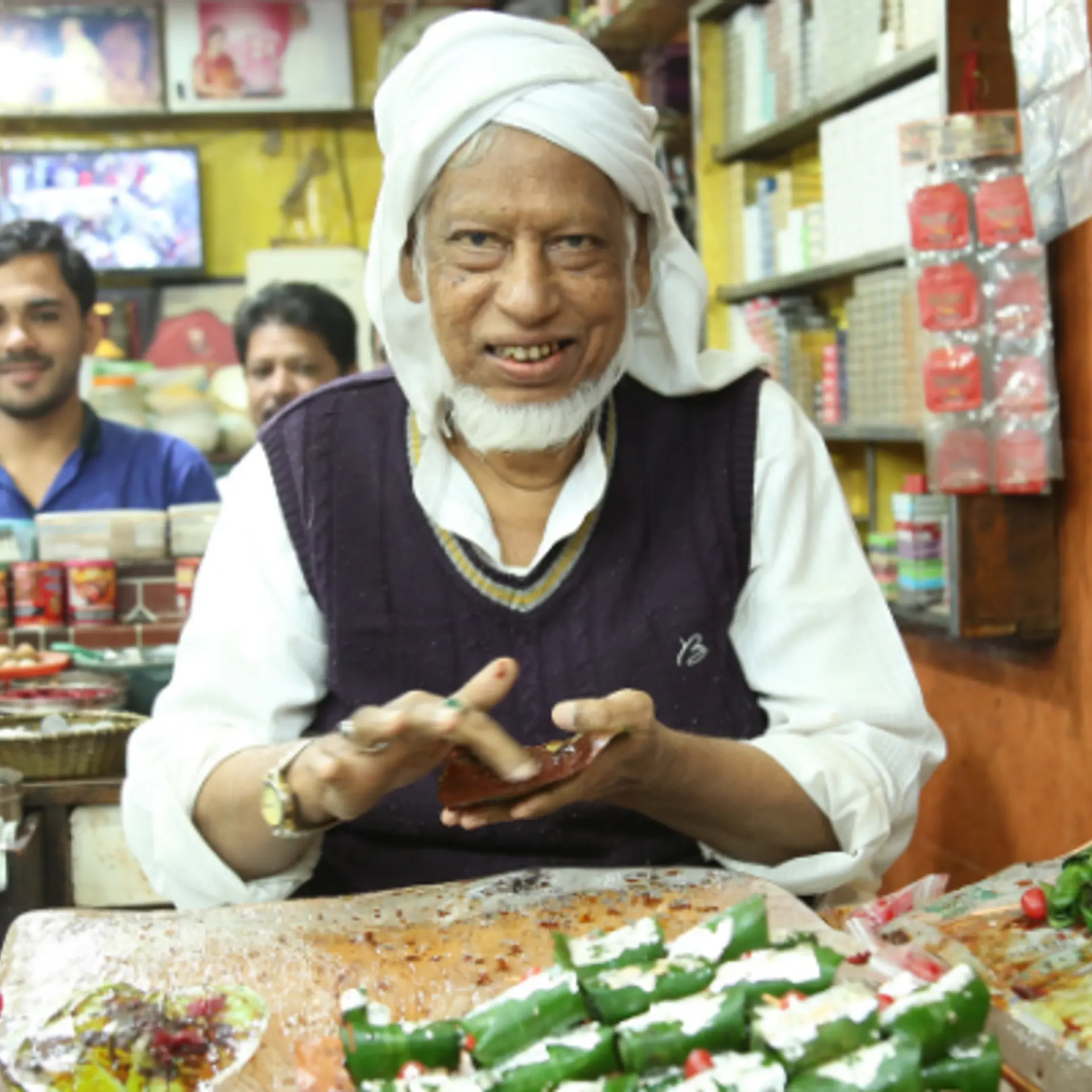These sibling entrepreneur duos set up successful SMBs and now earn in crores
Entrepreneurs going into business together need to have each other’s back, much like how an ideal sibling relationship goes. These brother/sister duos show why working with a sibling can be a fun as well as profitable idea.

A co-founder who understands and shares a founder’s vision is often critical to entrepreneurial success. But finding such a co-founder is easier said than done.
Indian entrepreneurs often partner with friends and acquaintances, but their business relationships can be rocky.
Perhaps nobody understands an entrepreneur better than their own sibling, as they share similar values and face common problems while growing up.
Here are five multi-crore Indian SMBs that are run by brother/sister duos:
Veetaday

Veetaday founders Arjun Agarwal (left), Bhupendra Agarwal (centre) and Raghav Agarwal (right)
When Lucknow-based brothers Raghav Agarwal and Arjun Agarwal started cookie brand 'Veetaday' in 2014, they didn't expect to shut their entire cookie division in just two years. After their premium cookies (which were costly to make) did not sell well enough, closing it down was inevitable. But the brothers soldiered on.
Alongside cookies, Veetaday used to make rusks (milk toasts). They weren't the focus of the brand, but they were doing so well that Veetaday pivoted completely to become a rusk brand.
"Over three years, our rusks became popular across Punjab, Haryana, Delhi-NCR, Jammu and Kashmir, Uttarakhand, Uttar Pradesh, Rajasthan, and Himachal Pradesh," Raghav says. Raghav is now expecting his rusk sales solely to rake in Rs 25 crore for the company this year.
Raghav and Arjun's success didn't come completely out of the blue. The brothers are third-gen entrepreneurs in a family with a history in making baked goods.
Their father, Bhupendra Agarwal, had started rusk brand 'Good Morning' in 1996 in Uttar Pradesh, and asked his sons if they wanted to join him. But the brothers wanted to start their own brand of cookies, and hence started Veetaday by using their own savings and launching a range of 14 cookie flavours.
Kimirica Hunter

Rajat Jain and Mohit Jain, Founders, Kimirica
When brothers Rajat Jain and Mohit Jain launched Kimirica in 2013, they were working out of a small, 100sqft room. The duo also had bad debts, and faced a huge cash crunch.
But they had complete faith in their idea. While conducting their research, they had observed that more than 70 percent of hotel amenity products for international hotel brands were imported.
The budding entrepreneurs kept telling themselves that they’d fill this gap by custom-making hotel amenity products locally and selling them to hotel chains. “Our idea was to fit the hotels’ brand images and budget, and hotels could also choose their best fit brand from our available stock,” Rajat says.
Little did they know that their perseverance would help Kimirica overcome insurmountable odds to become India’s largest manufacturer of luxury hotel toiletries and guest room amenities.
Kimirica Hunter is now worth Rs 300 crore, and records a turnover of around Rs 90 crore. It also serves a large number of international hotel chains such as Marriott, Starwood, Hilton, Jumeirah, Hyatt, Sofitel, Pullman, and an array of independent luxury hotels.
Inc.5

Almas Nanda, Founder, Inc.5 and Amin Virji, Managing Director, Inc.5
In 1998, Almas Nanda started Inc.5 to provide women with stylish footwear that did not compromise on comfort. It was started in a 100sqft store in Heera Panna Shopping Center in Mumbai. Alongside her brother Amin, Almas took the brand’s presence to 54 exclusive stores across India.
Amin says, “Almas wanted to break the myth that fashionable footwear cannot have the comfort element. She used to travel a lot and after seeing the trends in other places she wanted to incorporate them into her footwear brand.”
The siblings’ grandfather launched ‘Regal Shoes’ in 1954. It was a family-run business but was limited to manufacturing basic and formal footwear. In 1998, the siblings thought of exploring the opportunity in the untapped footwear market that provided good-looking footwear with comfort. Hence Inc.5 was launched.
Regal Shoes and Inc.5 were then merged in 2001 to form Inc.5 Shoes Private Limited. Inc.5, which now has a strong presence in Tier I and Tier II cities, including Delhi, Kolkata, Chennai, Bengaluru, Hyderabad, Ahmedabad, Kanpur, Lucknow, and Pune, records an annual turnover of Rs 163 crore.
RK Jewellers

Rohan Sharma (right), Managing Director, RK Jewellers with Kiara Advani (centre) and Prakshi Sharma (left) at an event
Rakesh Sharma and his wife, Sunita, founded RK Jewellers in Delhi in 1995 to serve customers with the best gold and diamond jewellery designs in the market. However, it was the second generation, comprising their children Rohan and Prakshi, that built on top of their parents’ achievements and took the brand to the next level.
The siblings wanted to transform RK Jewellers into a brand that offers aesthetic design collections, catering to an audience beyond India.
“Earlier, people used to buy jewellery as assets, but now people consider it fashionable to wear designer diamond and gold jewellery. Hence, my sister and I stepped into the business to cater to that niche audience and make products with international aesthetics,” Rohan Sharma says.
While the brand caters to women of all age groups, manufacturing diamond and polki jewellery, the brother-sister duo, in 2014, decided to corner the millennial segment with the launch of another label, Prakshi Fine Jewellery.
It offers diamonds and gemstones jewellery designed to appeal to millennials. The siblings now plan to capture a niche audience in the $2 billion jewellery industry and tackle competition from brands like Tanishq, Kalyan, Malabar, and others.
Enigma Automobiles

Enigma founders Alankrit Bohre (left) and Anmol Bohre (right)
While the likes of , , , , and focus on electric mobility in metro cities, two brothers and their micro manufacturing enterprise are placing their faith in bringing EVs to Bhopal and its neighbouring areas.
Anmol Bohre (29) and Alankrit Bohre (26), both computer science engineers, started EV manufacturing business Enigma Automobiles in October 2015. “My younger brother Alankrit had gone to Delhi where he saw e-rickshaws. He told me about it, and we thought we could do the same in Bhopal,” says Anmol.
The brothers had separately started marketing and engineering companies earlier, but found the chemistry between brothers far greater than that between regular business partners. They came together and started micro enterprise Enigma Automobiles with a capital of Rs 12 lakh, an amount which came from the brothers’ and their fathers’ savings.
Anmol and Alankrit took up a small farmhouse in Bhopal and started building e-rickshaws. In 2017, Enigma made a revenue of Rs 1.2 crore. On the back of this milestone, the brothers decided it was time to try something new: manufacturing electric two-wheelers.
The venture went better than they expected, and this year, their sales already crossed Rs 80 lakh. Anmol says they are on track to reach Rs 1.3 crore by March.









